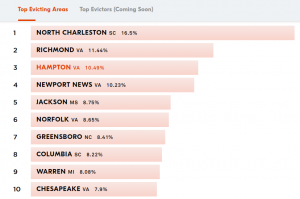I’ve been following guaranteed income or universal income programs for the past year or two now, and with the recent news about both Corey Booker and Bernie Sanders coming out with job guarantee programs, I thought it was a good topic to revisit.
Universal basic income is the idea that the State should provide all citizens with an income guarantee. There are variations on the idea, but the general crux is that residents receive regular payments to make sure that everyone has housing, food to eat — basic needs. I’m not sure when I first heard about the idea, but my interest in it was no doubt spurred by the question of automation the modern era. Many futurists, Silicon Valley types and research groups are convinced that advancements in artificial intelligence will lead to the elimination of millions of jobs in existence today. The easiest extrapolation is the rise of the self-driving car, and its impact on transportation industry and support jobs. There will be further ramifications for municipalities that depend on income from parking and moving violation fees, but we’ll set that aside for now.
Jobs that are repetitive by nature are the most likely to be eliminated by automation, but there are signs that knowledge worker jobs are just a vulnerable to these systems as well. We will see a revolution in labor and the types of jobs available in the coming decades, the debate today is over what kind of jobs will follow. Past technological revolutions have eventually given way to new types of jobs for subsequent generations of workers, but there is a growing consensus that the number of new jobs created by robotics and automation will not be anywhere near the order of magnitude of those that are lost.
Things look even bleaker when one considers the growing income inequality and concentration of wealth that has been ongoing for the past four decades. Companies like Amazon continue to gobble up more and more businesses, forcing competitors to come on board their e-commerce platform or be driven into the dust. Meanwhile retail workers at Macy’s, KMart, JCPenny’s and so on get laid off, while Amazon workers get forced into slave-labor conditions, pissing in bottles on the warehouse floor instead of taking bathroom breaks in order to keep up metric. And Jeff Bezos becomes the world’s richest man.
Proponents of basic income such as myself feel that such programs are necessary to provide a new social safety net in the 21st century. As Virginia Senator Mark Warner noted at an event for the Center for Strategic & International Studies last week, the social contract of the last 70 years is dead. The idea that a worker today will finish a 40 year career at a company with a pension and a gold watch is as antiquated as the manual typewriter. Today it’s not even apparent that workers will receive a living wage, or health care, let alone retirement savings. Businesses continue to offload labor to their customers, as evidenced by the conversion to self-checkout line in most grocery stores today.
There are a number of Libertarians or right-leaning individuals that like the idea of UBI, but their approval stems from the simplicity and cost-savings of administering such programs, as opposed to the bureaucracy necessary to support the so-called welfare state, but it is not a universally accepted conclusion that UBI programs would negate the need for all other social safety net programs.
After I started writing this post, I found that Finland, which had started a UBI pilot a year ago, has decided to terminate the program, mainly, it seems, because of negative public opinion to the prospect of handing out money without any work requirements. It’s important to note at this point that the actual data from the experiment hasn’t been released, so it remains to be seen what effect a UBI has on recipients’ behavior. Opponents of UBI argue that doing so will encourage more ‘taker’ behavior and lead to more millennials playing video games, proponents such as myself believe that income programs will allow people to pursue new businesses or education opportunities, or enrich themselves in other ways.
As long as we have an economic system that requires low-income earners to spend more and more of their labor for a declining wages, while allowing the wealthy to take a larger and larger piece of the pie by virtue of their existing wealth, the need for redistribution programs such as UBI will become more and more necessary.
